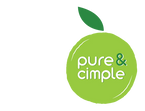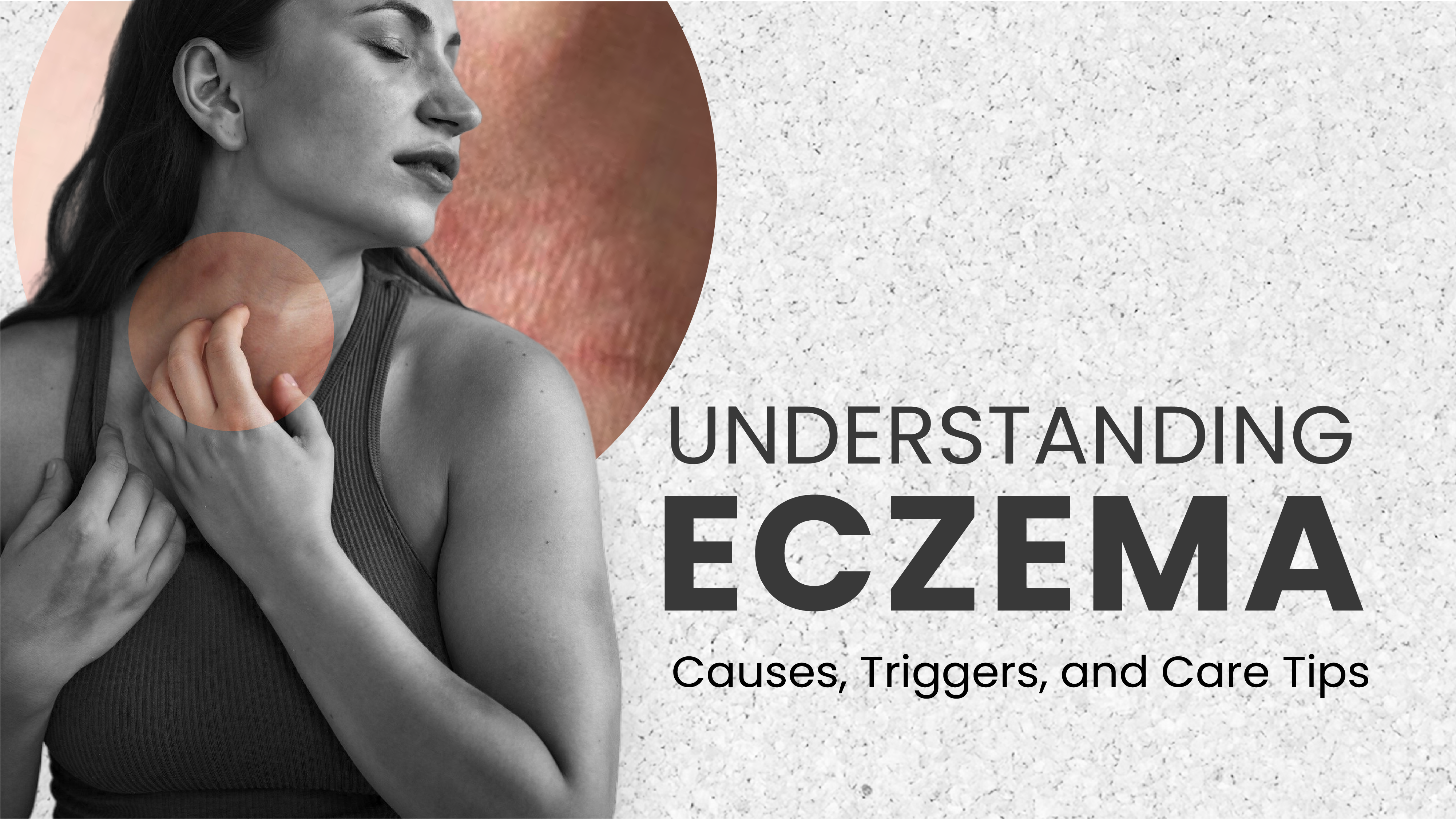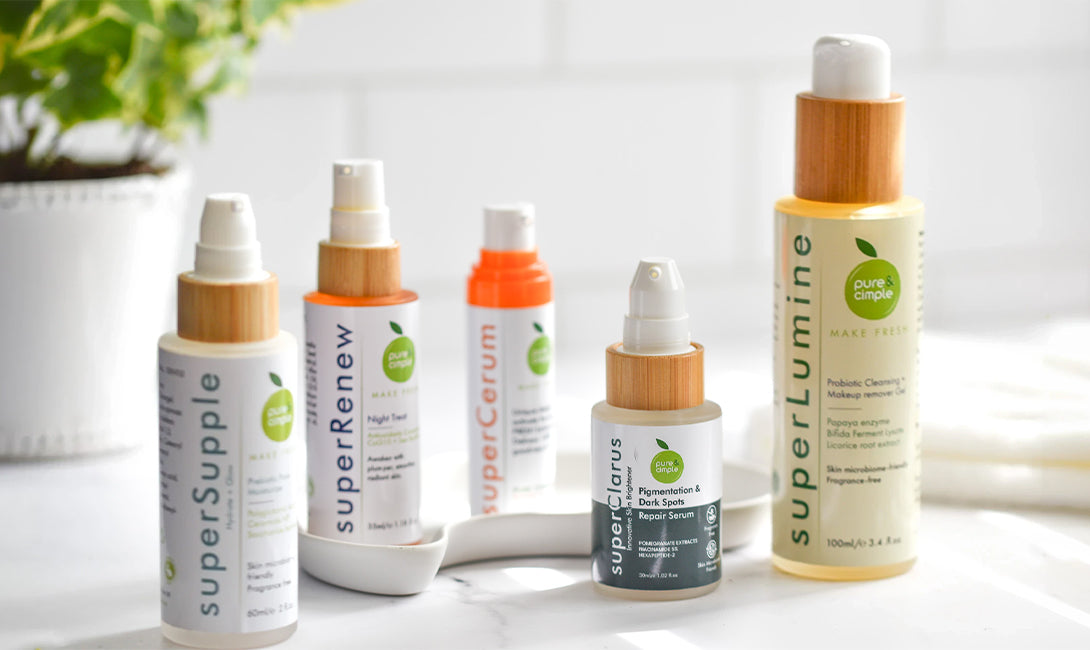Eczema, also known as atopic dermatitis, is more than just dry skin—it's a chronic condition that affects millions of people worldwide. If you've ever experienced the relentless itch, red patches, and discomfort that come with eczema, you know how challenging it can be to manage. The good news? With the right skincare routine and mindful choices, you can keep eczema flare-ups under control and enjoy healthier, more resilient skin.
What Exactly Is Eczema?
Eczema is a condition where the skin becomes inflamed, itchy, and irritated. It's often linked to a compromised skin barrier, which allows moisture to escape and irritants to enter. While eczema can appear at any age, for women in the peri/menopause stage, eczema can become more prevalent or worsen due to hormonal fluctuations. The drop in estrogen levels during this time can lead to drier skin, making it more susceptible to irritation and eczema flare-ups. Managing these changes with appropriate skincare is essential to maintaining healthy, resilient skin during this phase of life.

Common Triggers of Eczema
1. Harsh Weather Conditions: Extreme cold, dry air, or hot, humid weather can all exacerbate eczema symptoms. These conditions can strip your skin of moisture, leading to dryness and irritation.
2. Stress: Believe it or not, your emotional state can directly impact your skin. Stress can trigger or worsen eczema, making it essential to find ways to manage stress effectively.
3. Irritants: Everyday products like laundry detergents, soaps, and shampoos can contain harsh chemicals that irritate the skin. Even something as seemingly innocuous as a fragrance can trigger a flare-up.
4. Dietary Triggers: While food doesn't cause eczema, certain foods like dairy, eggs, or gluten can trigger flare-ups in some people.
5. Allergens: Pollen, pet dander, and dust mites are common environmental allergens that can aggravate eczema.

Lifestyle Changes to Manage Eczema
Managing eczema isn’t just about what you put on your skin—it’s also about the choices you make every day. Here are some lifestyle changes that can make a significant difference in keeping eczema under control:Use a Humidifier: Dry air can sap moisture from your skin, especially during winter. Using a humidifier in your home can help maintain moisture levels in the air, preventing your skin from drying out.
Manage Stress: Since stress can be a major trigger for eczema flare-ups, finding ways to manage stress is crucial. Consider practices like yoga, meditation, or simply setting aside time for activities that you enjoy and that help you unwind.
Wear Protective Clothing: If you're going to be exposed to harsh weather, be sure to wear soft, breathable clothing that protects your skin. In winter, layering with cotton clothing under wool can help reduce irritation.
Stay Hydrated: Drinking plenty of water is essential for keeping your skin hydrated from the inside out. Aim to drink at least eight glasses of water a day.
Visit a Dermatologist: If your eczema is severe or not responding to over-the-counter treatments, it’s important to consult a dermatologist. They can prescribe stronger medications or recommend therapies that can help manage your symptoms more effectively.
Use Lukewarm Water: Hot showers might feel good, but they can strip your skin of its natural oils. Instead, use lukewarm water and limit your shower time to 10-15 minutes.
Pat Dry, Don’t Rub: After bathing, gently pat your skin dry with a soft towel rather than rubbing it. This helps to avoid unnecessary irritation.
Dress Wisely: Wear soft, breathable fabrics like cotton to avoid irritating your skin. Also, consider washing new clothes before wearing them to remove any potential irritants.
Skincare for Eczema-Prone Skin: What to Avoid and Embrace
What to Avoid
 Harsh Cleansers: Many cleansers on the market are formulated with strong surfactants that can strip the skin of its natural oils, leaving it dry and vulnerable. For eczema-prone skin, it's best to avoid foaming cleansers and opt for gentle, hydrating alternatives.
Harsh Cleansers: Many cleansers on the market are formulated with strong surfactants that can strip the skin of its natural oils, leaving it dry and vulnerable. For eczema-prone skin, it's best to avoid foaming cleansers and opt for gentle, hydrating alternatives.Fragrances: Synthetic and even some natural fragrances can be irritating for sensitive skin. Fragrance-free products are always a safer choice for those with eczema.
Essential Oils: While they might be beneficial for some skin types, essential oils can be too strong and irritating for eczema-prone skin. Ingredients like lavender, peppermint, and tea tree oil, often touted for their natural benefits, can actually worsen eczema symptoms.
Alcohol-Based Products: Alcohol is often used in skincare products for its quick-drying properties, but it can be extremely drying and irritating to sensitive skin. Avoid toners, serums, and other products that list alcohol high on their ingredient list.
Over-Exfoliation: Exfoliating too often or using harsh exfoliants can damage the skin barrier, leading to increased irritation and flare-ups. Stick to gentle exfoliation, if any, and always listen to your skin’s needs.
What to Embrace
 For eczema-prone skin, simplicity is key. A minimalist skincare routine focuses on gentle, nourishing products that support the skin's natural barrier without overwhelming it.
For eczema-prone skin, simplicity is key. A minimalist skincare routine focuses on gentle, nourishing products that support the skin's natural barrier without overwhelming it.1. Gentle Cleansing: Choose a mild, non-foaming cleanser that effectively removes dirt and impurities without stripping the skin. Look for hydrating ingredients like glycerin or hyaluronic acid that help maintain moisture.
2. Moisturize, Moisturize, Moisturize: Keeping your skin well-moisturized is essential for managing eczema. Opt for a rich, fragrance-free moisturizer that locks in hydration and helps repair the skin barrier. Ingredients like ceramides, colloidal oatmeal, and shea butter are excellent choices.
3. Prebiotics and Probiotics for Skin Health: Incorporating products that contain prebiotics and probiotics can be a game-changer for eczema-prone skin. These ingredients help to balance the skin's microbiome, strengthen the skin barrier, and reduce inflammation. By fostering a healthy environment on your skin's surface, prebiotics and probiotics can help prevent flare-ups and promote overall skin health.
4. Minimalist Serums: If you use serums, stick to one or two that target specific concerns without adding unnecessary ingredients. Hyaluronic acid for hydration or niacinamide for soothing and strengthening the skin barrier are good options.
5. Sun Protection: Sunscreen is a must, even for sensitive skin. Choose a mineral-based sunscreen with zinc oxide or titanium dioxide, as these are less likely to cause irritation compared to chemical sunscreens.
6. Patch Test New Products: Before introducing any new product into your routine, always perform a patch test. Apply a small amount to a discreet area of your skin and wait 24-48 hours to see if any irritation occurs.
Embrace a Simple Routine: Eczema-prone skin thrives with consistency and simplicity. Stick to a routine that includes cleansing, moisturizing, and sun protection, avoiding the temptation to try every new product that hits the market. Your skin will thank you for the gentle, minimal care that supports its health and resilience.
The Pure & Cimple Approach: Gentle Care for Eczema-Prone Skin
We understand the unique challenges of managing eczema. That's why our formulations are carefully crafted with your skin's health in mind. By avoiding ingredients that are known to irritate sensitive skin, such as alcohol, fragrances, and essential oils, we ensure that your skin is treated safely. Instead, we focus on nourishing, skin-friendly ingredients that support the skin barrier, helping to reduce the frequency and severity of eczema flare-ups.Our products are designed to be as gentle as they are effective, allowing your skin to heal and thrive without exposure to harmful irritants. Because we believe that every skin is beautiful—and with the right care, every skin can be healthy.







